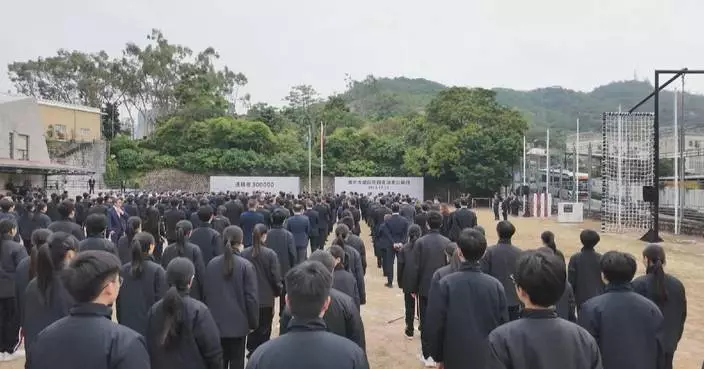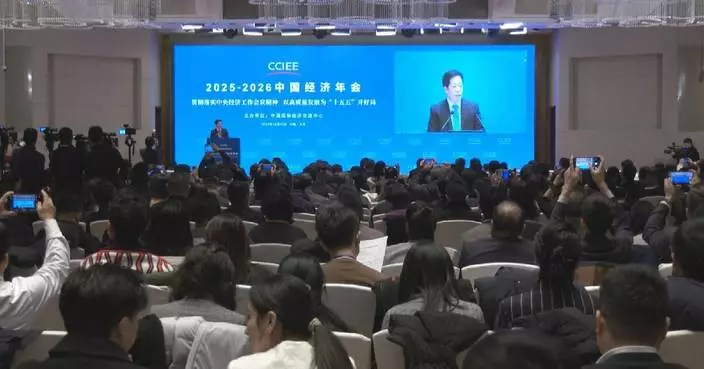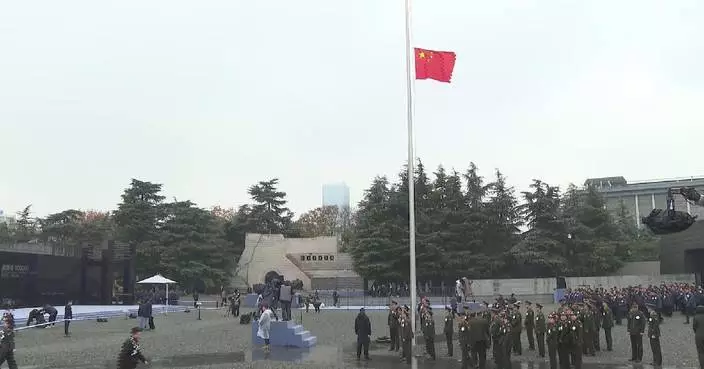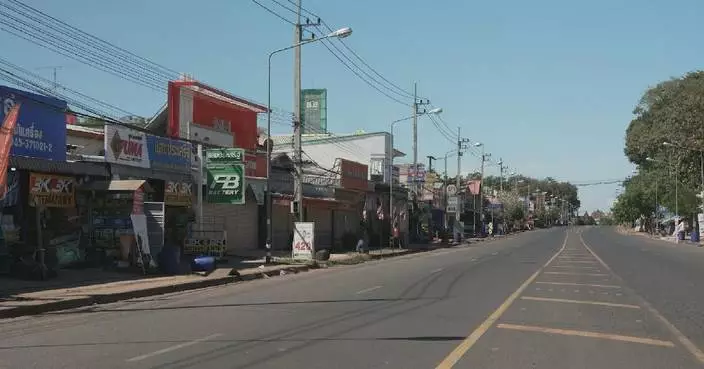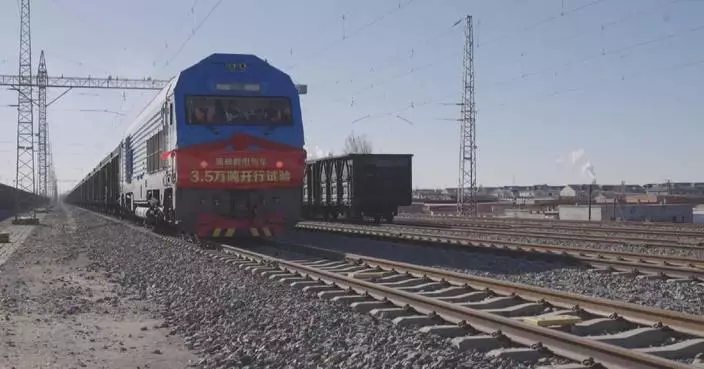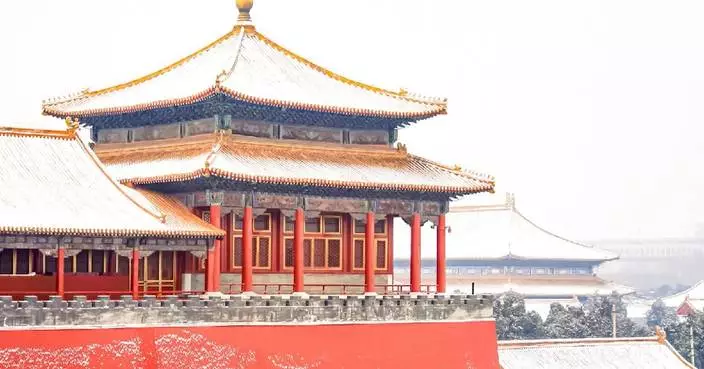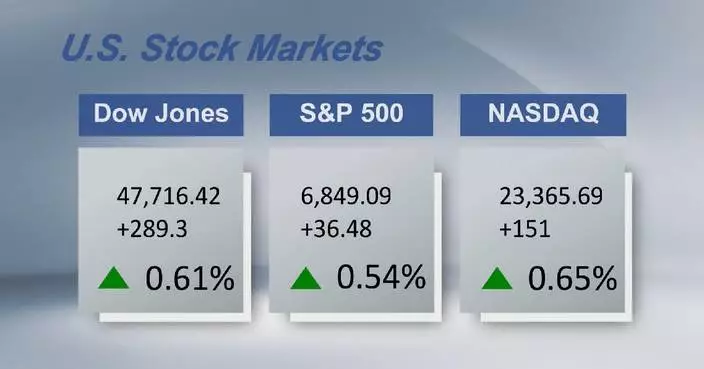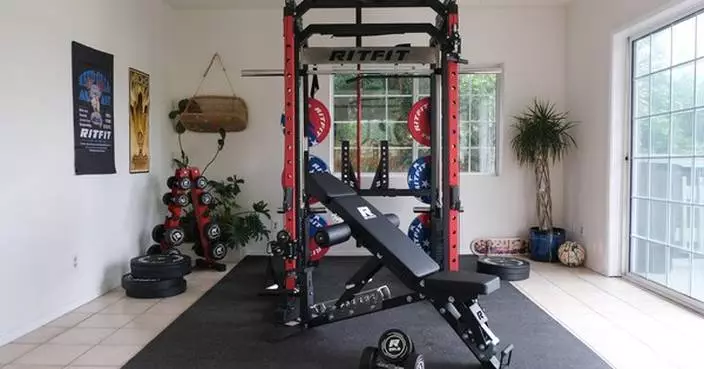Feature · News

Twenty U.S. states sue Trump's fee hike of H-1B visas

U.S. fighter jets enter Venezuelan airspace as tensions escalate

China's poverty alleviation experience worth global study: former Singaporean diplomat

China maps out innovation-focused economic agenda for 2026
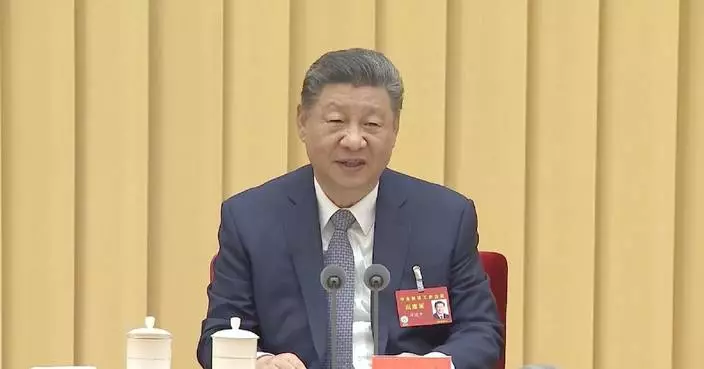
China holds Central Economic Work Conference to plan for 2026
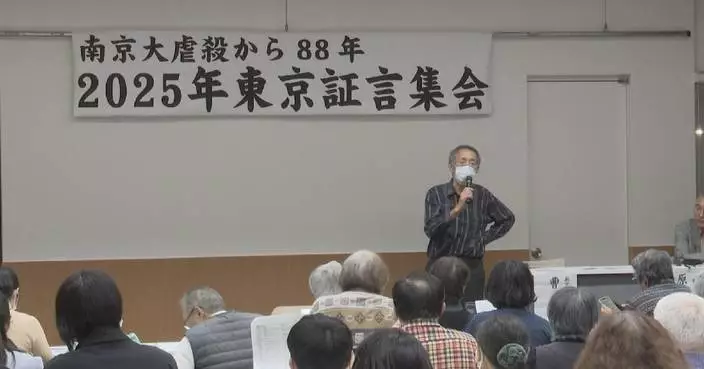
Nanjing Massacre testimonies renew calls in Japan to confront aggression history
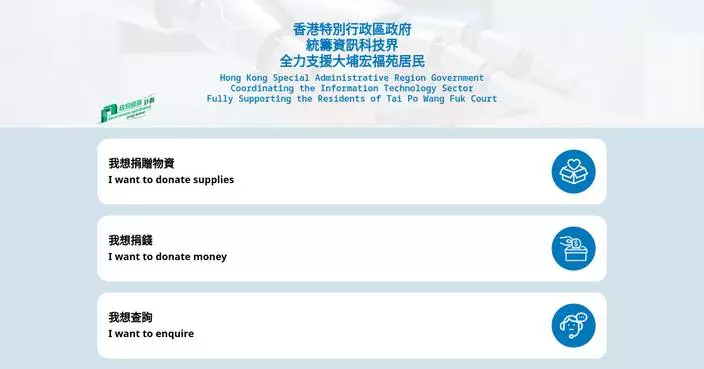
Government Task Forces Mobilize $3.7 Billion Fund for Wang Fuk Court Fire Relief Efforts

China commemorates Nanjing Massacre victims in National Memorial Ceremony

15 Thai soldiers killed in Thailand-Cambodia border clashes

China holds national memorial for Nanjing Massacre victims, calling for remembrance of history

Shenzhen-Zhongshan Link facilitates Greater Bay Area connectivity
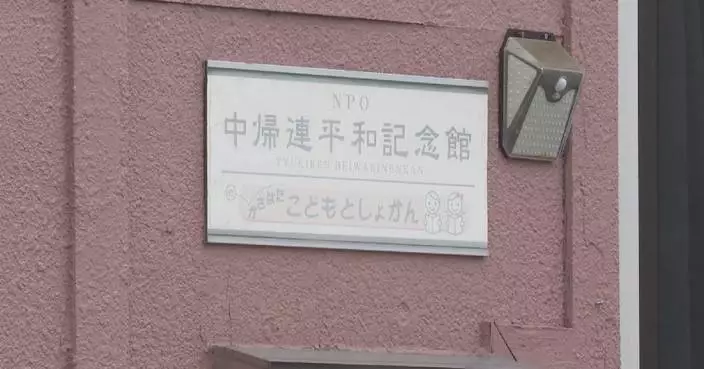
Japan's Chukiren Peace Memorial Hall brings historical truth to more people
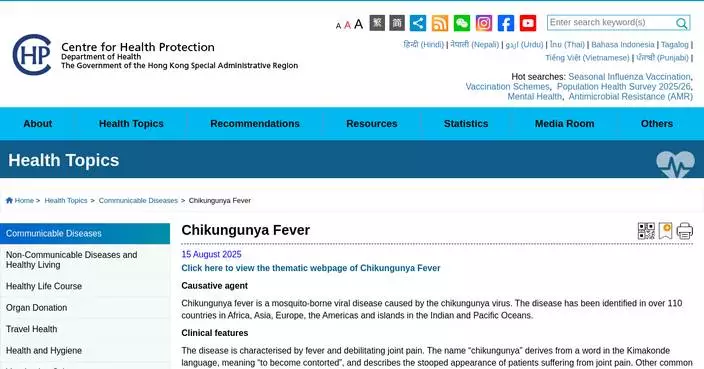
Hong Kong Reports No New Chikungunya Cases, Tsing Yi Trails Closed for Mosquito Control Efforts
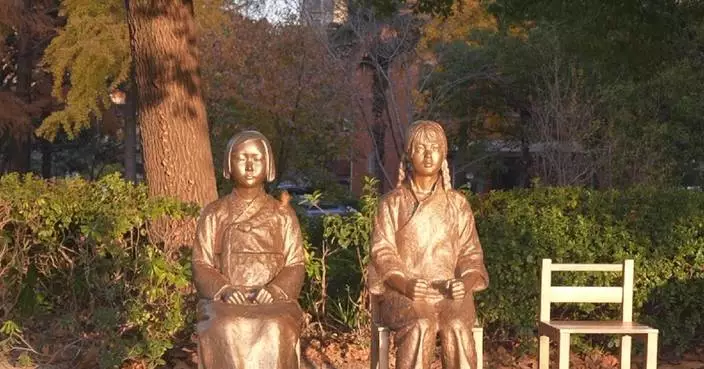
Chinese academic warns of Japan's regression in historical accountability
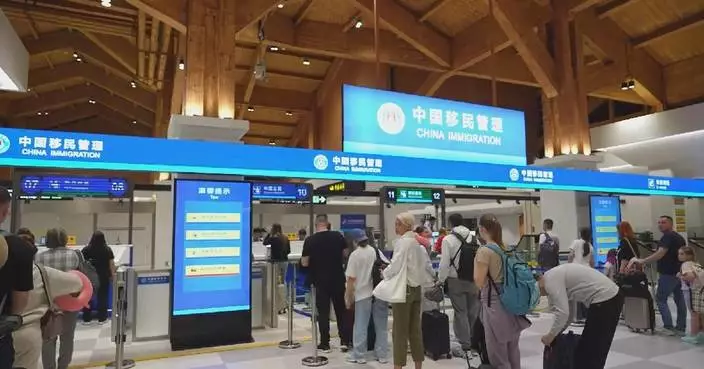
Hainan streamlines entry procedures for int'l travelers ahead of independent customs operation

China to move toward AI's wide, secure integration across economy, society in 2026: expert

Government Task Forces Mobilize $3.7 Billion Fund for Wang Fuk Court Fire Relief Efforts
China commemorates Nanjing Massacre victims in National Memorial Ceremony
15 Thai soldiers killed in Thailand-Cambodia border clashes
China holds national memorial for Nanjing Massacre victims, calling for remembrance of history
Twenty U.S. states sue Trump's fee hike of H-1B visas
U.S. fighter jets enter Venezuelan airspace as tensions escalate
China's poverty alleviation experience worth global study: former Singaporean diplomat
China maps out innovation-focused economic agenda for 2026
China holds Central Economic Work Conference to plan for 2026
Nanjing Massacre testimonies renew calls in Japan to confront aggression history
Shenzhen-Zhongshan Link facilitates Greater Bay Area connectivity
Japan's Chukiren Peace Memorial Hall brings historical truth to more people

Hong Kong Reports No New Chikungunya Cases, Tsing Yi Trails Closed for Mosquito Control Efforts
Chinese academic warns of Japan's regression in historical accountability
Hainan streamlines entry procedures for int'l travelers ahead of independent customs operation
China to move toward AI's wide, secure integration across economy, society in 2026: expert
Feature·Bloggers

【What Say You?】Trump and Starmer Barely Bother with Jimmy Lai – Just Lip Service to Check the Box

【Mark Pinkstone】Committee to investigate Tai Po fire will expedite closure for the bereaved

【Ariel】9 Arrested for Illegal Drills: Tai Po Fire Lurkers Ready to Strike

【Mark Pinkstone】The return of Roach and his poisoned tongue

【What Say You?】UK Agitators Hijack Grief: The "Triplet" Protest Strategy

【Bastille Commentary】Tightening the Net on Subversive “Parliaments” Is Exactly the Point

Multiple victims reported in shooting at Brown University in Rhode Island
- Arctic air sweeps south as residents of the Pacific Northwest remain on guard after severe flooding
- Trump pledges retaliation after 3 Americans are killed in Syria attack that the US blames on IS
- Russia and Ukraine trade attacks as US and European officials prepare for peace talks
- Fear grips Congo's Uvira as M23 rebels take control, displacing 200,000
- Belarus frees Nobel Prize laureate Bialiatski, opposition figure Kolesnikova as US lifts sanctions
- More loons are filling Maine's lakes with their ghostlike calls
- Nobel Peace Prize laureate and others who took on Belarus' president are among the freed prisoners
- Orbán's rival leads protest over alleged child abuse in Hungary's state-run institutions
- Fighting rages on Thai-Cambodian border despite Trump's ceasefire claim

Investigation into Tai Po fire to conclude within nine months: HKSAR chief executive
- Int'l guests call for remembering history at China's national event honoring Nanjing Massacre victims
- More residents flee to shelters as fighting flares along Thailand–Cambodia border
- Video offers new evidence of Japan's wartime germ-warfare crimes in northeast China
- Japanese residents hold memorials for Nanjing Massacre
- China releases historical evidence from Russia on notorious Japanese Unit 731
- Video offers details of Japan's germ-warfare crimes in northeast China
- Global figures hail high-quality development, resilience of Chinese economy
- Chinese archives' evidence of Unit 731 biological war crimes aligns with Russian Khabarovsk trials records
- Khabarovsk Trial exposes Japan's germ-warfare crimes in China

Jury says Johnson & Johnson owes $40 million to 2 cancer patients who used talcum powders
- Higher cost, worse coverage: Affordable Care Act enrollees say expiring subsidies will hit them hard
- Official streaming platform for the Games of the Future Abu Dhabi 2025 powered by ADNOC launches ahead of opening competition
- In Alaska’s warming Arctic, photos show an Indigenous elder passing down hunting traditions
- Bulgaria's president will start talks on new cabinet after government collapse
- SmallRig and FamilyLens Launch Global Family Filmmaking Initiative at 3rd FamilyLens International Film Festival
- SEAX Global Acquires Major Stake in Interlink Telecom to Accelerate ASEAN Expansion
- HiTHIUM Launches Three Breakthrough Innovations at Its Third Eco-Day, Unlocking an Intelligent Future with Long-Duration Energy Storage
- M7 World Championship unveils first Opening Ceremony, tournament draw, and M7 Pass—elevates Indonesia on global stage
- Ohio State’s Caleb Downs Named 2025 Paycom Jim Thorpe Award Winner

Humanoid robots take center stage at Silicon Valley summit, but skepticism remains
- Winter virus season so far is not too bad, but doctors worry about suffering to come
- Ford turns to stepped-up tech and cooperation with police to thwart F-150 pickup thieves
- A Chinese whistleblower now living in the US is being hunted by Beijing with help from US tech
- Appeals court backs contempt finding against Apple, but reopens a door for iPhone app fees
- Disney invests $1B in OpenAI in deal to bring characters like Mickey Mouse to Sora AI video tool
- These are the key AI players on the cover of Time's 'Architects of AI' magazine
- Open AI, Microsoft face lawsuit over ChatGPT's alleged role in Connecticut murder-suicide
- NASA loses contact with its Maven spacecraft orbiting Mars for the past decade
- Professor Youmin Xi honoured with University of Liverpool Fellowship

Amy Schumer says she and her husband have decided to end their marriage
- Affable comedy acting legend Dick Van Dyke turns 100 years old
- Hailee Steinfeld and NFL husband Josh Allen are expecting their first child
- Meet the Indigenous women behind Mexican President Claudia Sheinbaum's 'most stylish' looks
- Oscar winner Morricone’s lost opera debuts in Naples after 30 years
- Bestselling British writer Joanna Trollope dies at 82
- It feels good to be Jelly Roll. And now, he's ready to win a Grammy
- Photos show Ennio Morricone's opera 'Partenope' as it premieres in Naples
- A dance hall in Buenos Aires guarantees tango sessions with professional partners
- Director convicted of scamming $11M from Netflix and going on lavish spending spree

Xaivian Lee scores 24 to lead No. 18 Florida to an 80-70 victory over George Washington
- Scamacca scores twice for Atalanta to claim just its fourth Serie A win of the season
- JuJu Watkins attends USA Basketball camp and focuses on leadership during ACL rehab
- Salah returns to help Liverpool beat Brighton and Arsenal needs 2 own-goals to see off Wolves
- Raphinha scores 2 as Barcelona wins to add pressure on Real Madrid's Alonso before crunch game
- Mets reach 2-year deal with infielder Jorge Polanco after losing Pete Alonso, AP source says
- Terrier's spectacular backheel sets up Leverkusen's derby win over Cologne
- Guerin alters Wild's recipe for success by trading for former Norris Trophy winner Quinn Hughes
- Devils beat the Ducks 4-1 to end a 5-game home losing streak
- Packers running back Emanuel Wilson joins Josh Jacobs on injured report

Hong Kong Launches GoGlobal Platform to Support Mainland Enterprises in Global Expansion
- Hong Kong Customs Seizes 11 Kilograms of Cannabis Buds at Airport, Arrests Passenger from Bangkok.
- Hong Kong Customs Seizes 714 Endangered Bird Eggs Worth $10 Million at Airport
- James McDonald officially accepts LONGINES World’s Best Jockey award
- Former SCED Gregory So Remembered for Contributions to Hong Kong's Economic Development
- Interdepartmental Committee Updates Progress on Mosquito Control and Chikungunya Prevention at Tsing Yi Nature Trails
- Nine arrested in Hong Kong for unlawful drilling related to national security, police seize offensive weapons
- Task Force Enhances Mental Health Support for Tai Po Fire Victims and Families
- Two Passengers Sentenced for Importing Duty-Not-Paid Cigarettes, Highlighting Customs Enforcement Efforts
- Hong Kong Customs Seizes $8.9 Million in Drugs, Arrests Three in Major Trafficking Busts

Former Singaporean diplomat highlights significance of World Openness Report
- Japanese civil group calls for remembrance of Nanjing Massacre
- Sense of uncertainty looms over Venezuelan university amid escalating tensions with US
- Favorable policies boost cruise, yacht industries in China's Hainan
- China's trade momentum increasingly powered by Global South: experts
- EV sales face challenges due to cancellation of US gov't incentives
- Russia-provided evidence on Japanese Army Unit 731 verifies evidence preserved in China
- US seeks to revive Monroe Doctrine to reinforce influence in Americas: Cuban scholar
- Descendants of John Rabe, chronicler of Nanjing Massacre, stress historical memory
- Voices of Asia should be heard, valued by world: former Singaporean diplomat
Category · News

Multiple victims reported in shooting at Brown University in Rhode Island

Xaivian Lee scores 24 to lead No. 18 Florida to an 80-70 victory over George Washington

Scamacca scores twice for Atalanta to claim just its fourth Serie A win of the season

JuJu Watkins attends USA Basketball camp and focuses on leadership during ACL rehab

Salah returns to help Liverpool beat Brighton and Arsenal needs 2 own-goals to see off Wolves

Arctic air sweeps south as residents of the Pacific Northwest remain on guard after severe flooding

Trump pledges retaliation after 3 Americans are killed in Syria attack that the US blames on IS

Raphinha scores 2 as Barcelona wins to add pressure on Real Madrid's Alonso before crunch game

Russia and Ukraine trade attacks as US and European officials prepare for peace talks

Fear grips Congo's Uvira as M23 rebels take control, displacing 200,000

Belarus frees Nobel Prize laureate Bialiatski, opposition figure Kolesnikova as US lifts sanctions

Mets reach 2-year deal with infielder Jorge Polanco after losing Pete Alonso, AP source says

More loons are filling Maine's lakes with their ghostlike calls

Terrier's spectacular backheel sets up Leverkusen's derby win over Cologne

Guerin alters Wild's recipe for success by trading for former Norris Trophy winner Quinn Hughes

Devils beat the Ducks 4-1 to end a 5-game home losing streak

Packers running back Emanuel Wilson joins Josh Jacobs on injured report

Colts activate 44-year-old QB Philip Rivers, making him eligible to play Sunday against Seahawks

Maresca slams lack of support at Chelsea after 'worst' period in his time at the club

Jury says Johnson & Johnson owes $40 million to 2 cancer patients who used talcum powders

Nobel Peace Prize laureate and others who took on Belarus' president are among the freed prisoners

Orbán's rival leads protest over alleged child abuse in Hungary's state-run institutions

Investigation into Tai Po fire to conclude within nine months: HKSAR chief executive

Slot says 'no issue' with Salah after Egypt star recalled for Liverpool win
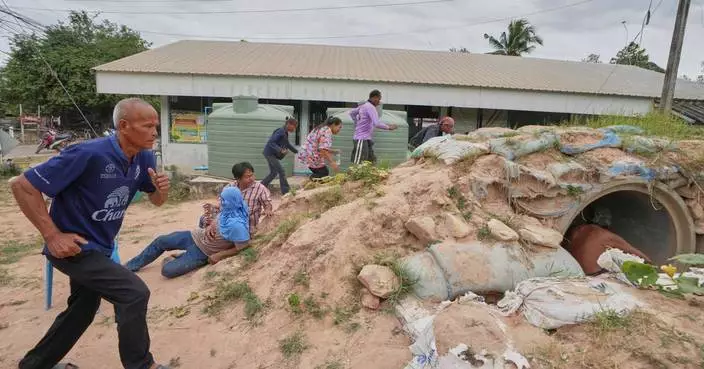
Fighting rages on Thai-Cambodian border despite Trump's ceasefire claim

Amy Schumer says she and her husband have decided to end their marriage
Int'l guests call for remembering history at China's national event honoring Nanjing Massacre victims

What to know about King Charles III's cancer treatment and his message to the public

As Trump slams Europe over migration, most leaders toughen their stance. Spain is an exception

Agnelli family affirms Juventus ownership and rejects buyout offer from cryptocurrency firm

UK police won't probe claim former prince asked bodyguard to investigate Virginia Giuffre

Israel says it has killed a top Hamas commander in Gaza

Some Native Americans draw shocked response over contract to design immigration detention centers

Johannes Lochner edges out Francesco Friedrich in Lillehammer World Cup bobsled race
More residents flee to shelters as fighting flares along Thailand–Cambodia border

Affable comedy acting legend Dick Van Dyke turns 100 years old
Video offers new evidence of Japan's wartime germ-warfare crimes in northeast China

Higher cost, worse coverage: Affordable Care Act enrollees say expiring subsidies will hit them hard

Photos of amputees in Gaza, struggling to survive after losing limbs to Israeli airstrikes
Japanese residents hold memorials for Nanjing Massacre
China releases historical evidence from Russia on notorious Japanese Unit 731
Video offers details of Japan's germ-warfare crimes in northeast China
Global figures hail high-quality development, resilience of Chinese economy

Alabama vows to address Oklahoma's 'disrespect' when they meet in the CFP's opening round

Official streaming platform for the Games of the Future Abu Dhabi 2025 powered by ADNOC launches ahead of opening competition

UN chief visits Iraq to mark end of assistance mission set up after 2003 invasion

Messi's tour of India gets off to chaotic start as angry fans storm field

Loic Meillard leads Swiss podium sweep at World Cup giant slalom in Val d'Isere
Chinese archives' evidence of Unit 731 biological war crimes aligns with Russian Khabarovsk trials records

Heisman Trophy finalists include 3 quarterbacks and Notre Dame's Jeremiyah Love

Grassley built a reputation for government oversight. Has he abandoned it under Trump?

In Alaska’s warming Arctic, photos show an Indigenous elder passing down hunting traditions

Lindsey Vonn places 2nd in a World Cup downhill a day after becoming oldest winner at age 41

Bulgaria's president will start talks on new cabinet after government collapse
Khabarovsk Trial exposes Japan's germ-warfare crimes in China
Former Singaporean diplomat highlights significance of World Openness Report

Hong Kong Launches GoGlobal Platform to Support Mainland Enterprises in Global Expansion
China's "Jiutian" large drone takes first flight, aims for versatile roles
Japanese civil group calls for remembrance of Nanjing Massacre
Sense of uncertainty looms over Venezuelan university amid escalating tensions with US
Favorable policies boost cruise, yacht industries in China's Hainan
China's trade momentum increasingly powered by Global South: experts
EV sales face challenges due to cancellation of US gov't incentives
Russia-provided evidence on Japanese Army Unit 731 verifies evidence preserved in China
US seeks to revive Monroe Doctrine to reinforce influence in Americas: Cuban scholar
Descendants of John Rabe, chronicler of Nanjing Massacre, stress historical memory
Voices of Asia should be heard, valued by world: former Singaporean diplomat
China's Five-Year Plans indispensable for long-term high-quality development: former senior diplomat
China commemorates Nanjing Massacre victims with nationwide memorial activities
Newly released Soviet archives provide fresh evidence of Unit 731's atrocities
Russian central bank warns of legal action over EU plan on assets
Int'l observers look to China as stabilizing force in coming five-year period
China holds memorial ceremonies for Nanjing Massacre victims
Khabarovsk Trial exposes Japan's bacteriological warfare during WWII: Russian historians

Hong Kong Customs Seizes 11 Kilograms of Cannabis Buds at Airport, Arrests Passenger from Bangkok.
At least 14 killed as winter storms batter Gaza: civil defense
Chinese economy performs better than expected in major indicators this year: official
Holiday fair in Hong Kong raises support for families after Tai Po tragedy

Eritrea withdraws from regional bloc as UN expresses concern over tensions with Ethiopia
Thailand-Cambodia border clashes displace thousands before ceasefire
Russia reports seizing settlements as Ukraine claims gains in direction of Kupyansk

Hong Kong Customs Seizes 714 Endangered Bird Eggs Worth $10 Million at Airport

Democratic former Sen. Doug Jones launches campaign for Alabama governor
New U.S. national security strategy represents shift in transatlantic relations: expert




